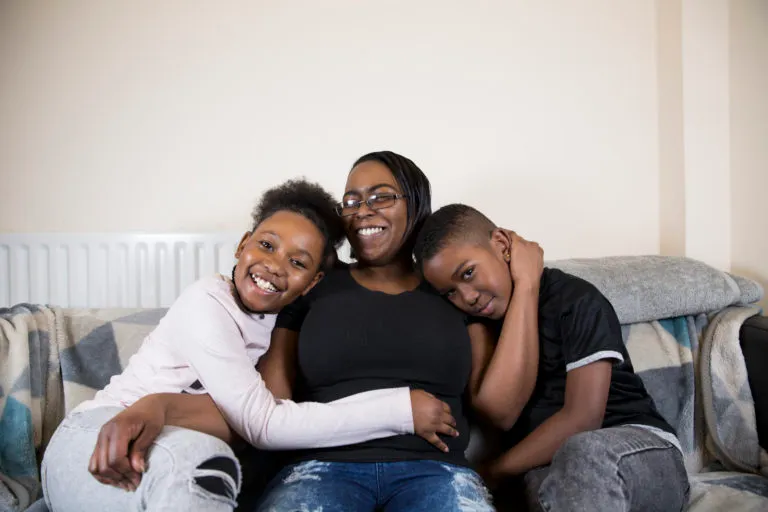Social Housing Tenants Charter: the importance of listening to residents
Published: by Deborah Garvie

This week, commencing 16 August, the government launched the long-awaited, and very welcome Social Housing White Paper. In it, the prime minister promised to make sure ‘social housing tenants are treated with the respect they deserve’ – testament to three and a half long years of campaigning by both Grenfell United and Shelter.
While the White Paper doesn’t deliver exactly what we called for – a new and user-friendly regulator of consumer standards, similar to the Food Standards Agency’s standards – it comes pretty close:
- in addition to enforcing financial viability and governance standards, the existing Regulator of Social Housing will be expected to strengthen the consumer standard landlords must meet and create a strong, proactive regime to enforce them
- where residents have unresolved individual complaints, the Housing Ombudsman is expected to be far more accessible and speedier in securing redress
We’ll publish a more detailed assessment of how the White Paper measures up to our original proposals next week.
Thank you
We want to thank everyone who supported our campaign, including the thousands of residents of social housing who made submissions to our Big Conversation and told their stories in our Social Housing Commission report.
And we particularly thank the Social Housing Commissioners – Ed Daffarn, Rob Gershon, and David Tovey – whose lived experience of social housing informed so much of our work.
The White Paper is an example of how the best housing policy is co-produced in conjunction with those who are ‘expert by experience’ – and know all too well the consequences of getting it wrong. We’re pleased that Ministry of Housing officials really listened to us and Grenfell United in developing these proposals.
Grenfell United was very clear about the changes that needed to happen in management of social housing after the fire. Its guiding principal was that the legacy of the 72 men, women and children who died in the fire must be that no residents should never again be put at risk in their homes – nor dismissed as ‘rebels’ for pointing out that they were.
Decades of stigmatisation
Social tenants were ignored for raising very real fears; the heart-breaking legacy of decades of negative rhetoric towards people living in council and housing association homes, both from politicians and the media.
Given the disproportionate number of people of colour who live in social housing (often because they’ve faced discrimination in the private market), these public sentiments were tinged with more than a spattering of racism. Social housing residents felt stigmatised and marginalised.
Our research found that by the time of the Grenfell fire, council housing was no longer viewed as a desirable tenure of choice – of decent ‘forever homes’ in stable, supportive communities – even by many of those who had benefitted from growing up in it.
Instead, thanks to years of cutting budgets and selling off of council homes, social housing became so extremely rationed that only a small proportion of the millions on waiting lists had a realistic chance of an offer. Social housing neighbourhoods were painted as crime-ridden ‘no-go’ areas. They were described by successive prime ministers as ‘sink estates’ that acted as ‘a block on mobility and aspiration’, instead of the tight-knit working class communities that most of them are.
Reversal of rights lost in 2010
By the time of the 2010 Social Housing White Paper, this attitude towards social housing had become so entrenched that it took the biggest cut (60%) in the coalition’s austerity budget, equal only to the 60% cut to local authorities – many of which still owned and managed social homes.
As well as the cut, the 2010 paper proposed the removal of rights – to permanent tenancies, succession by family-members and regulation of consumer standards – that tenants had fought so hard to secure. It also saw the abolition of the Tenant Services Authority, which so many tenants had invested time and energy in helping to set up and was only three months into the job.
At the time, we opposed the cuts and proposals, rushed through at pace in the Localism Act 2011, on the basis they’d remove accountability from social landlords and put residents at risk. Since the heart-wrenching and anger-inducing fire at Grenfell Tower, we’ve been determined to support residents in winning back those rights. This week’s White Paper is the first positive step to reaching that goal.
Now we must value social housing
But rights can be meaningless when the funds simply aren’t there to make things better. No regulator can force a landlord to adequately tackle major disrepair or overcrowding if the millions of pounds needed to do so – by modernising the homes or building the new ones needed by growing families – just aren’t available.
If we truly value social housing – and the huge difference it can make to levelling up communities and fulfilling aspiration – we need to put our money where our mouth is. We need the government to acknowledge how vital it is to boost our economy by investing in social housing – both to bring existing homes up to a safe and decent standard, and to leave the legacy of a new generation of well-designed and environmentally-friendly family homes.
That would truly honour the 72 who lost their lives, who are forever in our hearts. So, please continue to support us in making that happen. Thank you.